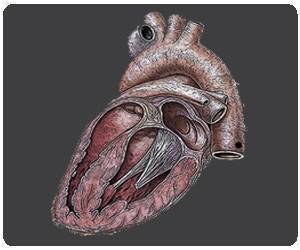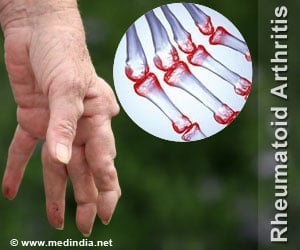Differences in blood cell characteristics and numbers affects the risk of complex diseases such as heart disease and autoimmune diseases.

- The blood cell characteristics and functions are influenced by 2,500 previously undiscovered locations in the genome.
- Researchers discovered important 'rare and low frequency' genetic differences that are present in fewer than 10% of the population.
- The genetic differences cause people to have more young red blood cells in their peripheral bloodstream and increases the risk of heart attack.
- Genetic differences that increased the amount of certain white blood cells, known as eosinophils, also increased the risk of a person developing autoimmune diseases.
The project's goals were to explore and describe the range of epigenetic changes that take place in bone marrow as stem cells develop into different types of mature blood cell.
It also sought to match epigenetic changes and genetic differences to the physical characteristics of each cell type and use this knowledge to understand how these can lead to blood disorders, cancer and other complex diseases.
As part of BLUEPRINT, Wellcome Trust Sanger Institute led two of the six papers being published in the journal Cell.
First Study
By comparing almost 30 million DNA sequence differences in more than 173,000 people with variation in the physical properties of blood cells the scientists identified 2,500 previously undiscovered locations in the genome that influence blood cell characteristics and functions.
Dr William Astle, from the University of Cambridge said: "The scale, resolution and homogeneity of our work were vital. Because we examined so many people we were able to discover important 'rare and low frequency' genetic differences that are present in fewer than 10% of the population.”
The researchers found that these differences can have a much larger impact on the characteristics of blood cells than the common differences studied previously.
Of the more than 300 rare and low frequency difference, 74 appear to affect the structure of proteins.
These give important clues as to which biological pathways are involved in controlling the production, function and characteristics of blood cells.
The team found that genetic differences that cause people to have more young red blood cells in their peripheral bloodstreams also increase the risk they will have a heart attack.
Dr Adam Butterworth, one of the study's senior authors, from the University of Cambridge said: "When mature red blood cells rupture in our blood the body replaces them with new, young red cells - a process known as haemolysis. So we think that increased haemolysis and increased risk of coronary heart disease are affected by the same biological pathways. Identifying these pathways may offer new treatment possibilities."
Another finding
In another new finding, the research team showed that genetic differences that increased the amount of certain white blood cells, known as eosinophils, also increased the risk of a person developing rheumatoid arthritis, asthma, coeliac disease and type 1 diabetes.
In the second, researchers collaborated with scientists at the University of Cambridge, McGill University in Canada and several UK and European institutions to explore the <>role that epigenetics plays in the development and function of three major human imbmune cell types: CD14+ monocytes, CD16+ neutrophils and naïve CD4+ T cells, from the genomes of 197 individuals.
The team identified 345 regions of the genome where they could pinpoint the likely molecular causes underlying a person's predisposition to immune-related diseases such as inflammatory bowel disease, type 1 diabetes and multiple sclerosis.
Dr Tomi Pastinen, senior author on the second study, from McGill University said: "We have created an expansive, high-resolution atlas of variations that deepens our understanding of the interplay between the genetic and epigenetic machinery that drives the three primary cells of the human immune system. We have identified hundreds of genetic variations associated with autoimmune diseases that appear to affect the activity of genes in specific regions of the genome, pointing to biological pathways that may be involved in disease and which, ultimately, may be treatable with medication."
The BLUEPRINT project has provided the worldwide research community with detailed insights and understandings that will form the basis of important blood cell research for many years to come.
When integrated with large-scale genetic studies, these results and data inform understanding of how differences in the human genome and epigenome interact to cause devastating common diseases, and inform new avenues for treating these conditions.
Source-Medindia















